Best
Ukulele for Beginners
-
Overall: Play With Comfort Thanks To A Silky-Smooth Satin Finish
-
Best Feature: All-Mahogany Body Creates Plenty Of Sweet Sonic Goodness
-
TedScore™: 9.5/10
Best
Value Concert Ukulele
-
Overall: Smooth Playability Thanks To The Rosewood Fingerboard
-
Best Feature: Rich, Balanced Tones Delivered From The Mahogany Body
-
TedScore™: 8.5/10
Best
Budget-Friendly Soprano Ukulele
-
Overall: Comfortable To Play, Especially For Young Players
-
Best Feature: Crystal-Clear, Balanced Tone Flows From A Mahogany Body
-
TedScore™: 8.5/10
Strumming the last chord on my ukulele fills me with joy – that’s the magic of this small, wonderful instrument! When comparing soprano vs concert ukulele, you’ll discover that each has a unique charm.
The soprano ukulele has a bright and cheerful sound, and it’s the classic ukulele we all think of. On the other hand, the concert ukulele, slightly larger, has a warmer sound that fills the room with a bit more richness.
Let me explain their unique qualities, and who knows? You might find yourself eager to start playing along!
What are Soprano and Concert Ukuleles?
If you’re looking to buy a ukulele, you’ll likely come across two popular sizes: the soprano and concert ukulele. Soprano ukuleles are the smallest size, while concert ukuleles are slightly larger.
Soprano ukuleles are known for their bright, happy sound and are often associated with traditional Hawaiian music. They’re also popular with children and beginners due to their small size and affordability. Soprano ukuleles typically have 12-15 frets and a scale length of around 13 inches.

On the other hand, concert ukuleles are a bit larger and produce a warmer, fuller sound than their soprano counterparts. They’re great for players who want more volume and projection and are often used for complex music styles. Concert ukuleles usually have 15-20 frets and a scale length of around 15 inches.
Both soprano and concert ukuleles are tuned to the same pitches and octaves, so the fingering is the same. However, due to their size differences, they have different tonal characteristics. Soprano ukuleles have a higher pitch, while concert ukuleles have a lower pitch.
In terms of construction, both soprano and concert ukuleles are typically made of wood, with mahogany, koa, and spruce being popular choices. They also often feature nylon strings, which produce a softer sound than steel strings.
Differences in Size and Body
The main difference between soprano and concert ukulele lies in their size and sound.
Soprano ukuleles are smaller and produce a bright, traditional sound, while concert ukuleles are slightly larger and offer a richer, fuller tone. Both types are popular choices for beginners and experienced players alike.
Let’s take a look at a detailed difference between soprano and concert ukulele:

Body Size: The concert ukulele is larger than the soprano ukulele. The body of a concert uke is typically around 23 inches long, while the body of a soprano ukulele is around 21 inches long. This difference in ukulele size can affect the tone and volume of the instrument.
Scale Length: The scale length of a ukulele is the length of the strings played. The scale length of a concert ukulele is typically around 15 inches, while the scale length of a soprano uke is around 13 inches. This difference in scale length can affect the spacing between frets and the ease of playing chords.
Frets: The number of frets on a ukulele can vary depending on the size and type of the instrument. Most soprano ukuleles have between 12 and 15 frets, while most concert ukuleles have between 15 and 20 frets. This difference in frets can affect the range of notes played on the instrument.
Body Length: As mentioned earlier, the body length of a concert ukulele is longer than that of a soprano ukulele. This can affect the tone and volume of the instrument, as well as the overall playability.
Fret Spacing: The spacing between frets on a ukulele can vary depending on the size and type of the instrument. The fret spacing on a concert ukulele is typically wider than that of a soprano ukulele. This can affect the ease of playing chords and the overall playability of the instrument.
Tone and Sound Differences
The soprano ukulele has a jangly, bright sound perfect for playing traditional Hawaiian music. Due to its smaller size, the soprano ukulele produces a higher pitch and has a more compact sound. It’s also easier to play for beginners since the frets are closer together.

On the other hand, the concert ukulele has a warmer, fuller sound that is ideal for playing a variety of genres. Its larger size and longer strings produce a deeper, more resonant sound perfect for filling larger spaces. The concert ukulele has more tonal characteristics, making it more versatile than the soprano.
Both types of ukuleles use the same standard tuning – GCEA – but the concert ukulele has more projection and volume due to its larger body. This makes it a great choice for performers who want to play in front of an audience.
In terms of the ukulele strings, both concert and soprano ukuleles usually come with nylon strings. However, some string players prefer fluorocarbon strings, producing a brighter and more responsive sound.
Playability and Experience
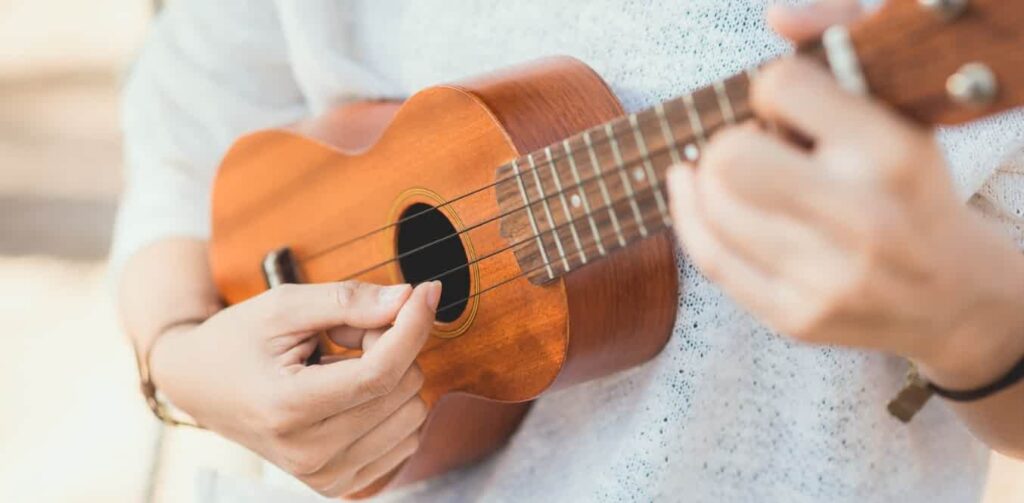
Both concert and soprano ukuleles are fairly easy to learn. They both have four strings and are in the same ukulele tuning which is GCEA. However, the shorter scale length of soprano ukuleles can make it easier for beginners to play.
If you have smaller hands, you might find the soprano ukulele more comfortable to play. The smaller size makes reaching all the frets and playing chords easier. However, if you have larger hands, you might find the concert ukulele more comfortable. The larger ukulele size gives you more room to move your fingers and play more complex chords.
As an intermediate player, you might appreciate the concert ukulele’s deeper tone and greater volume. It’s great for filling larger spaces if you’re performing for an audience. On the other hand, if you prefer a brighter, more traditional ukulele sound, the soprano might be the better choice for you.
Other Types of Ukuleles
Tenor Ukulele
The tenor ukulele is larger than the soprano and concert ukuleles, with a longer scale length and wider fret spacing.
This makes it ideal for players with larger hands or those who prefer a deeper, richer sound.
The tenor ukulele is often used in jazz and blues music, but it can be played in a variety of genres.

Baritone Ukulele
Baritone ukuleles are the largest of the standard ukulele sizes, with a deeper, more guitar-like tone.
It is tuned differently than the other ukuleles, with a lower pitch similar to the bottom four strings of a guitar.
This makes it a great option for guitar players looking to transition to the ukulele.

Banjo Ukulele
The banjo ukulele, also known as the banjolele, combines the sound of a banjo with the size and shape of a ukulele.
It has a drum-like body and a short, fretted neck, giving it a unique sound that is perfect for folk and Americana music. This instrument is even louder than concert and tenor ukuleles.

Alto Ukulele
The alto ukulele, also known as the contralto or concert-pitched ukulele, is slightly larger than the soprano ukulele but smaller than the concert ukulele. It has a richer tone than the soprano, making it a great option for players who want a slightly larger ukulele but don’t want to sacrifice the classic ukulele sounds.
Price and Affordability
When it comes to buying a ukulele, price is a major consideration. Luckily, the concert and soprano ukuleles are affordable and won’t break the bank. However, there are some differences in price between the two.
Soprano ukuleles are typically the most affordable of the standard ukulele sizes. You can find a decent beginner soprano ukulele for as little as $/£30 to $/£50. Of course, prices can go up depending on the brand, quality of materials, and additional features such as electronics.
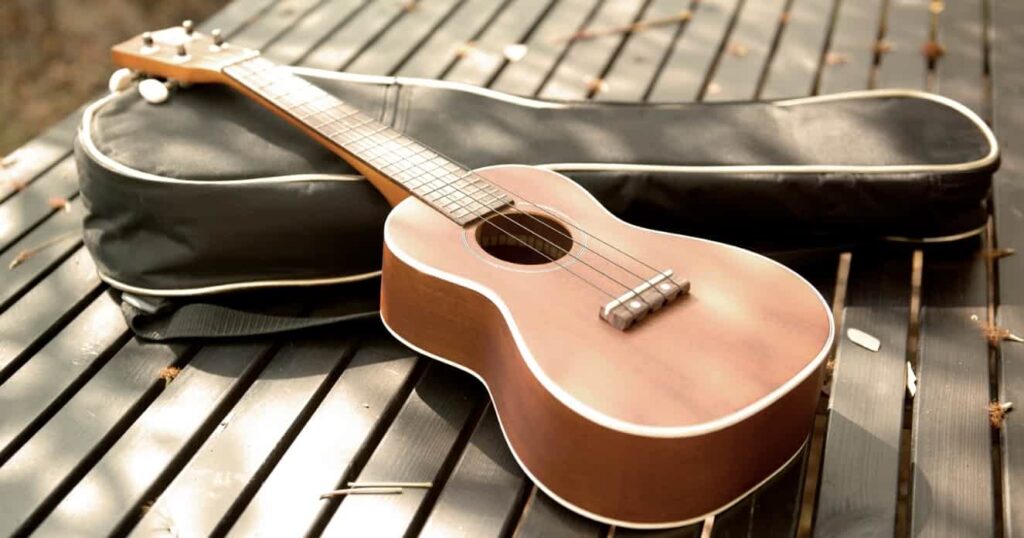
Concert ukuleles are slightly more expensive than soprano ukuleles. You can expect to pay around $/£50 to $/£100 for a beginner concert ukulele. The price can go up from there depending on the brand and quality of materials.
A soprano ukulele may be better if you’re on a tight budget. However, a concert ukulele may be worth the investment if you spend a little more for a slightly larger instrument and a deeper tone.
Both soprano and concert ukes are available in higher-end models for midrange ukuleles. Depending on the brand and materials used, these can range from $/£200 to $/£500 or more.
3 Best Soprano Ukuleles
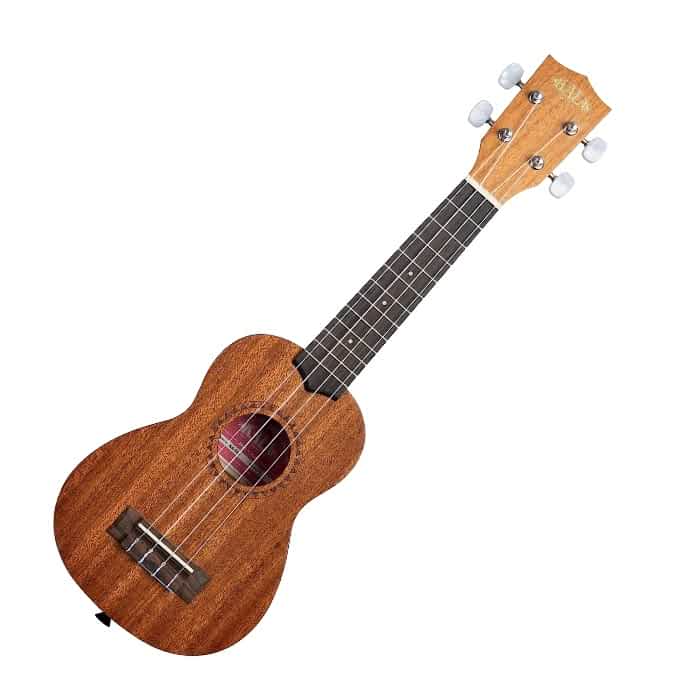
PERFECT FOR: players of all ages and skills
FEATURES: All-mahogany body creates plenty of sweet sonic goodness
OTHER INFO: Play with comfort thanks to a silky-smooth satin finish
Kala KA-15S Mahogany Soprano Ukulele
When you check the price above, you’ll see there are loads of great places to buy this item. Our personal favorite is Gear4music.
It is the largest music retailer in the UK and fast becoming the most respected online music shop in the US too. Their customer service is excellent, they have competitive prices, really fast shipping, and usually have the longest guarantee.
Most professional musicians use Gear4music, so there is no reason why you shouldn’t too!
- Enjoy a lively, warm, responsive ukulele character
- Classic soprano size delivers an instantly recognisable high-end shimmer
- None!
The professional musician who wrote this article combined many things,
from the product build, manufacturer’s reputation through to feedback
from other users, to create our famous TedScore™.

PERFECT FOR: beginners
FEATURES: Made with Nato wood for the top, back, and sides
OTHER INFO: Equipped with geared tuners for precise tuning
Lanikai LU-21 Standard Soprano Ukulele
When you check the price above, you’ll see there are loads of great places to buy this item. Our personal favorite is Gear4music.
It is the largest music retailer in the UK and fast becoming the most respected online music shop in the US too. Their customer service is excellent, they have competitive prices, really fast shipping, and usually have the longest guarantee.
Most professional musicians use Gear4music, so there is no reason why you shouldn’t too!
- Provides a warm and full sound with good sustain
- Comes at an affordable price point for the quality of the instrument
- The strings may need to be changed to improve the overall sound and playability
The professional musician who wrote this article combined many things,
from the product build, manufacturer’s reputation through to feedback
from other users, to create our famous TedScore™.

PERFECT FOR: beginners and young players
FEATURES: Crystal-clear, balanced tone flows from a mahogany body
OTHER INFO: Comfortable to play, especially for young players
Cordoba 15SM Soprano Ukulele
When you check the price above, you’ll see there are loads of great places to buy this item. Our personal favorite is Gear4music.
It is the largest music retailer in the UK and fast becoming the most respected online music shop in the US too. Their customer service is excellent, they have competitive prices, really fast shipping, and usually have the longest guarantee.
Most professional musicians use Gear4music, so there is no reason why you shouldn’t too!
- Portable, lightweight, and built for life on the road
- Sublime to play and even more exquisite to listen to
- The tuning pegs may require some adjustment to stay in tune over time
The professional musician who wrote this article combined many things,
from the product build, manufacturer’s reputation through to feedback
from other users, to create our famous TedScore™.
3 Best Concert Ukuleles
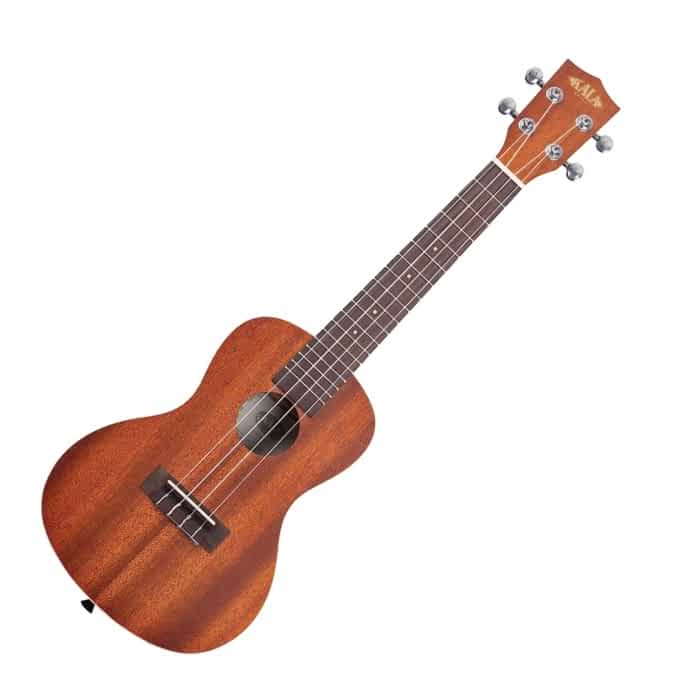
PERFECT FOR: performances on stage to sessions in the studio
FEATURES: Both the body and neck have been crafted from mahogany, which adds a punch and excellent sustain
OTHER INFO: Well balanced tones resulting from the walnut fingerboard and bridge
Kala KA-C Mahogany Concert Ukulele
When you check the price above, you’ll see there are loads of great places to buy this item. Our personal favorite is Gear4music.
It is the largest music retailer in the UK and fast becoming the most respected online music shop in the US too. Their customer service is excellent, they have competitive prices, really fast shipping, and usually have the longest guarantee.
Most professional musicians use Gear4music, so there is no reason why you shouldn’t too!
- Tuning stability thanks to chrome die-cast geared tuners and Aquila strings
- Classy and uniform design attributable to a natural satin finish
- An affordable ukulele that delivers a rich tonal range
- Some players may find the fret edges to be a bit sharp
The professional musician who wrote this article combined many things,
from the product build, manufacturer’s reputation through to feedback
from other users, to create our famous TedScore™.

PERFECT FOR: any performances of all playing abilities
FEATURES: Rich, balanced tones delivered from the mahogany body
OTHER INFO: Smooth playability thanks to the rosewood fingerboard
Cordoba 15CM Concert Ukulele
When you check the price above, you’ll see there are loads of great places to buy this item. Our personal favorite is Gear4music.
It is the largest music retailer in the UK and fast becoming the most respected online music shop in the US too. Their customer service is excellent, they have competitive prices, really fast shipping, and usually have the longest guarantee.
Most professional musicians use Gear4music, so there is no reason why you shouldn’t too!
- Provides a full, balanced tone with plenty of projection
- Vintage look provided by silver tuners and pearloid buttons
- Added punch thanks to back and sides material
- Does not come with a case or gig bag
The professional musician who wrote this article combined many things,
from the product build, manufacturer’s reputation through to feedback
from other users, to create our famous TedScore™.
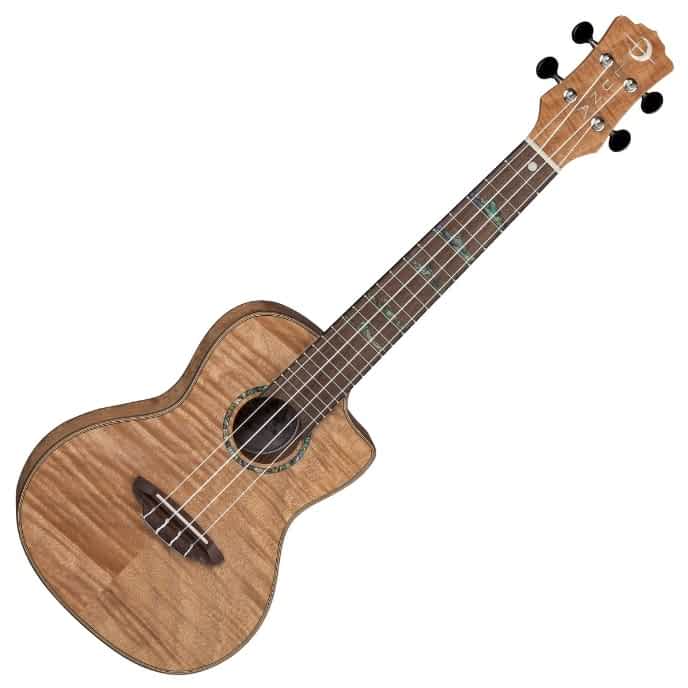
PERFECT FOR: live performance and practice
FEATURES: Lots of resonance and warmth with exotic mahogany build
OTHER INFO: Amazing depth of tone thanks to concert body size
Luna High Tide Exotic Concert Ukulele
When you check the price above, you’ll see there are loads of great places to buy this item. Our personal favorite is Gear4music.
It is the largest music retailer in the UK and fast becoming the most respected online music shop in the US too. Their customer service is excellent, they have competitive prices, really fast shipping, and usually have the longest guarantee.
Most professional musicians use Gear4music, so there is no reason why you shouldn’t too!
- Extremely wide-reaching ukulele that looks, feels, and sounds totally unique
- Includes a Luna ukulele gig bag at no extra cost
- The strings may need to be changed to improve the overall sound and playability
The professional musician who wrote this article combined many things,
from the product build, manufacturer’s reputation through to feedback
from other users, to create our famous TedScore™.
Difference Between Concert And Soprano Ukulele
Summary
When I’m playing my ukulele, I can’t help but notice the unique qualities of each type. The soprano ukulele has a light, cheerful sound that is perfect for kids or anyone who loves that classic ukulele vibe. On the other hand, the concert ukulele offers more presence and volume with its deeper tone, making it great for informal gigs or creating a mellow atmosphere at home.
Here’s a quick breakdown of concert vs soprano ukulele:
- Soprano Ukulele: Great for kids or that classic ukulele sound.
- Concert Ukulele: Perfect for a bigger sound, more frets, and adult hands.
Ultimately, whether I choose a soprano or concert ukulele depends on the mood and the music. Both are a joy to play, and I’d recommend trying to feel the difference for yourself. There’s a ukulele out there that’s just right for you!
Wait, there’s more!!!
If you’re searching for a new uke, check out this next article to know how much they’ll cost you. Clue: the prices won’t definitely break the bank!
FAQ's
A soprano ukulele is the smallest and most traditional size of ukulele. It is known for its bright and cheerful sound and is often associated with the classic ukulele sound. It is popular for its compact size and high-pitched tone.
A concert ukulele is a slightly larger size of ukulele, known for its warm and rich sound. It offers more frets and a deeper tone than the soprano ukulele, making it a popular choice for those seeking a fuller sound and more finger space.
The soprano ukulele is generally considered easier to play due to its smaller size and shorter scale length. However, this can vary depending on the individual player’s hand size and playing style.
Neither one is objectively better than the other, as it depends on personal preference and playing style. The soprano ukulele has a brighter and more traditional sound, while the concert ukulele has a slightly larger body and a fuller sound.










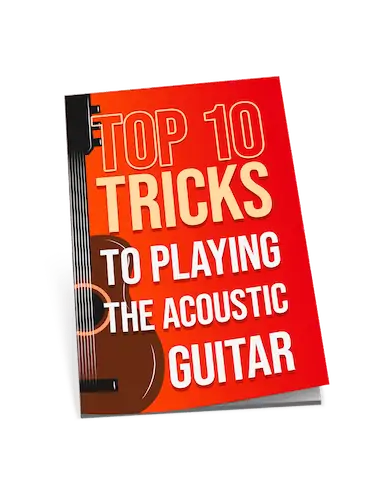
Soprano or concert, what matters most is how cool I look playing it, right? 😛
Lewis, this article is a treasure trove for anyone embarking on their musical journey with the ukulele. Your detailed comparison not only enlightens but also makes the choosing process a breeze for novices. The efforts you’ve put into demystifying these beloved instruments resonate deeply with enthusiasts like myself. Kudos!
so, are concert ukuleles way pricier than soprano ones? just wondering cause budget’s kinda tight but still wanna get something good.
I must commend Lewis Turner for an insightful exploration into the differences between soprano and concert ukuleles. However, I believe a further clarification regarding the historical emergence of these instruments could enrich your readers’ understanding. Specifically, the modification from the Portuguese machete to the Hawaiian ukulele in the late 19th century shaped the modern perception and construction of these instruments. Additionally, considering the impact of body size and string tension on sound production could offer a more nuanced analysis of the tonal differences.
wow didn’t know all that history stuff about ukuleles, thats pretty cool actually. makes me appreciate mine a bit more lol
concert ukuleles have a richer sound than sopranos, at least that’s what i found. good article
Lewis, I must say this article is well-structured and provides insightful details on the distinctions between soprano and concert ukuleles. From a professional standpoint, understanding these nuances is crucial for selecting the right instrument that complements one’s musical style and preferences. I’m particularly fond of concert ukuleles for their richer sound, but it’s fascinating to see how each type has its unique qualities.
Nice perspective, Eliza! Concert ukes do have a lovely tone.
Eliza, totally get what you mean. I have both but tend to lean towards my concert uke for the same reason.
hey Lewis, really loved reading through the article especially the bits about different ukulele types. i’ve just started learning the ukulele and i’m not totally sure which type would suit me best as a beginner. you mentioned soprano and concert ukuleles mainly, but i’m curious if one is better for complete newbies? i’ve heard the soprano is lighter and maybe easier to handle? thanks so much for shedding some light on this for me!
Hey, does size really affect playability that much? Just starting out and I’m torn between soprano and concert.